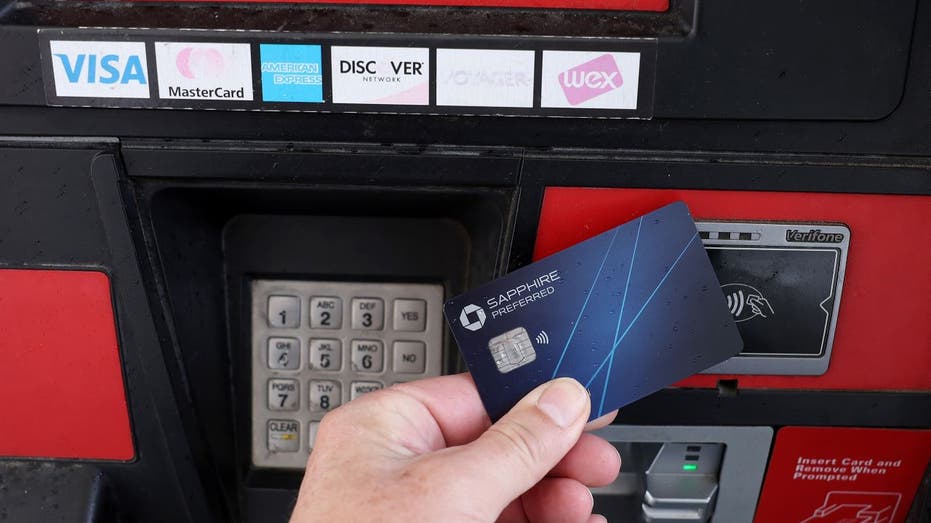Storch Advisors CEO Gerald Storch discusses the state of the American consumer ahead of the holidays on Varney & Co.
America’s middle class is feeling the squeeze like never before, according to new data.
Primerica’s latest Financial Security Monitor report for the third quarter found 55% of middle-income households now rate their personal financial situation negatively, a 6-point jump from the previous survey.
A new survey from Primerica shows a majority of middle-income Americans have a negative view of their household finances (Photo by Spencer Platt/Getty Images / Getty Images)
“For the first time in a year, a majority of middle-income households are feeling negative about their personal finances,” said Glenn Williams, CEO of Primerica. “In fact, this latest report represents the highest negative rating we’ve seen since we began fielding the survey exactly four years ago.”
Middle-income households’ view of the economy has deteriorated, too, over the past three months. A significant majority, 73%, said they have a negative view of the nation’s economic health, up one point from the prior reading.
JAMIE DIMON WARNS OF ‘CRITICAL ISSUES’ THAT COULD AFFECT US ECONOMY
The findings also indicated growing uncertainty about the economy, with 34% saying they are unsure about the economy’s direction, a sharp increase of 15 points from last quarter.
The survey polled households making between $30,000 and $130,000 annually, and 40% of respondents cited inflation as their top worry, up 8% from the previous quarterly survey.
High inflation on everyday necessities like food and gas over the past few years is increasingly taking a toll on most U.S. households’ budgets. (Daniel Acker/Bloomberg via Getty Images / Getty Images)
The Labor Department on Thursday said the consumer price index (CPI) — a broad measure of how much everyday goods like gasoline, groceries and rent cost – rose 0.2% in September from the prior month and was up 2.4% from a year ago.
High inflation has created severe financial pressures for most U.S. households, which are forced to pay more for everyday necessities like food and rent. Price hikes are particularly devastating for lower-income Americans, because they tend to spend more of their already-stretched paycheck on necessities and therefore have less flexibility to save money.
WHAT FOOD ITEMS SAW THE LARGEST PRICE HIKES AND DECLINES IN SEPTEMBER?
“Families continue to list inflation as their No. 1 concern, with the stress it brings spilling over into worry about being able to afford everyday essentials like food or groceries and going to the doctor as well as managing their rising credit card debt,” Williams said.
Primerica’s latest quarterly survey shows middle-income households are increasingly concerned about their credit card debt (Photo Illustration by Justin Sullivan/Getty Images / Getty Images)
Concerns about credit card debt among middle-income Americans is also on the rise, according to the findings. Forty-four percent said they are more worried about their credit card debt than they were a year ago, which is a 9% jump from last quarter and the highest level of concern since the question was first introduced in March 2023.
GET FOX BUSINESS ON THE GO BY CLICKING HERE
“The results of our survey reflect the accumulating financial stress middle-income families are facing,” Williams told FOX Business. “Recent cost of living increases are slowing and we have to remember many fell behind financially and are still recovering.”
FOX Business’ Eric Revell contributed to this report.

 Blog Post1 week ago
Blog Post1 week ago
 Economics1 week ago
Economics1 week ago
 Finance1 week ago
Finance1 week ago
 Personal Finance1 week ago
Personal Finance1 week ago
 Accounting1 week ago
Accounting1 week ago
 Economics1 week ago
Economics1 week ago
 Personal Finance6 days ago
Personal Finance6 days ago
 Personal Finance1 week ago
Personal Finance1 week ago












